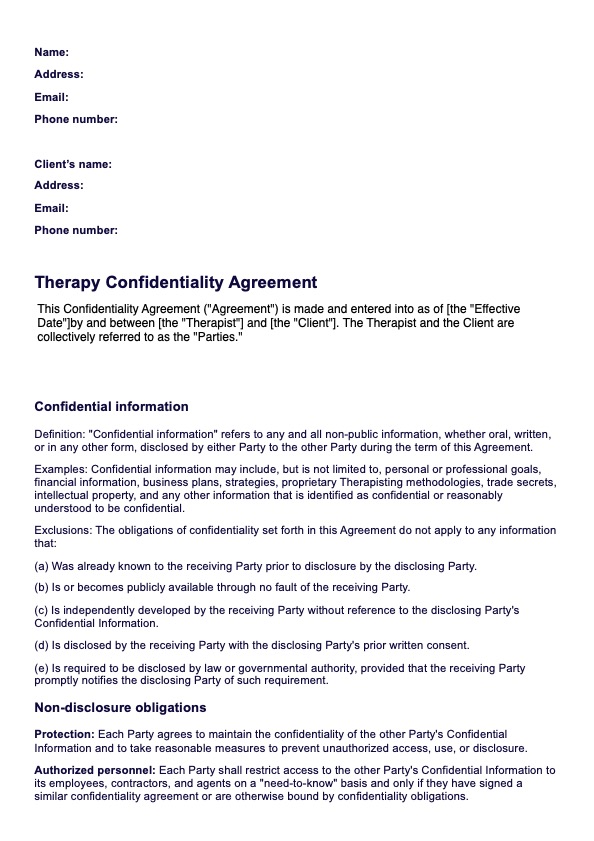Therapists and other mental health professionals can utilize the Therapy Confidentiality Agreement to establish clear terms and conditions of confidentiality with their clients. This ensures that both parties fully understand their rights and obligations regarding protecting sensitive information.

Therapy Confidentiality Agreement
Obtain a free Therapy Confidentiality Agreement template and example to protect yourself and your clients. Download our template now!
Use Template
Therapy Confidentiality Agreement Template
Commonly asked questions
The Therapy Confidentiality Agreement should be used when establishing a therapeutic relationship with a client.
The Therapy Confidentiality Agreement establishes expectations for both parties and addresses payment terms, the scope of therapy services, and other details related to maintaining confidentiality.
EHR and practice management software
Get started for free
*No credit card required
Free
$0/usd
Unlimited clients
Telehealth
1GB of storage
Client portal text
Automated billing and online payments











